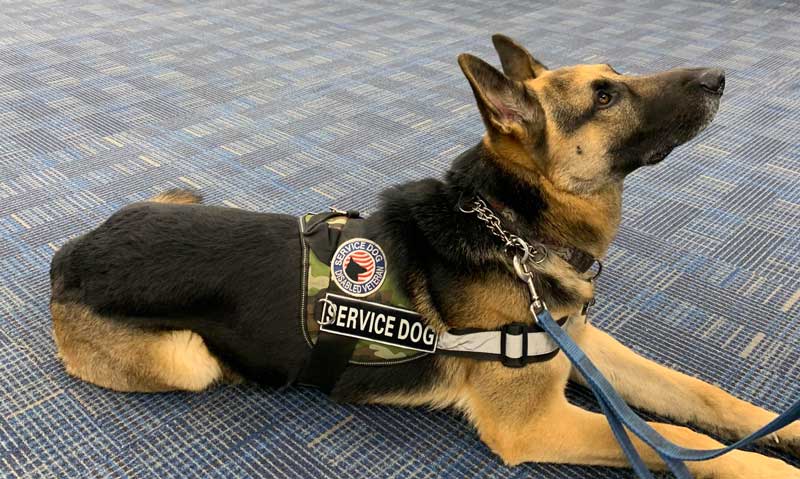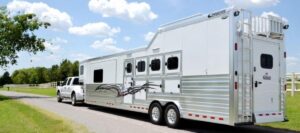Understanding the rights of the disabled to use their service animals
Who would discriminate against a disabled person with a service animal?
In general, cases involving denials of access to individuals with service animals fall into one of two classes: #1 The case of the “ignorant employee” or #2 The case of the “untrained” animal.
Ignorance of the law is an excuse, not a defense
Access to public accommodations is governed by the American’s with Disabilities Act, 42 U.S.C. ?? 12101 et seq. and its implementing regulations at 28 CFR ? 36.302. Access to airlines is governed by the Air Carrier Access Act, and its implementing regulations at 14 CFR ? 382.55. Access to housing is governed by the Fair Housing Act, 42 U.S.C. ?? 3601-3619. Equal access to transportation is governed by ADA regulation issued by the Department of Transportation, 49 CFR Part 37. Prohibition against discrimination in other realms may be covered by ?504 of the Rehabilitation Act of 1973, 29 U.S.C. ??794 et seq. and also by tate laws – usually the state version of the ADA. State laws generally expand the universe of places to which access is guaranteed, as well as expanding the universe of qualified individuals and qualified animals guaranteed access.
Am I covered?
Whether a particular location, business, etc is subject to any of the various legal requirements related to service animals is a mixed question of fact or law. But in general, the right of access is fairly universal, so it is more likely that you must comply with the law than that you are exempt.
Got customers?
You’re covered. Businesses and organizations that serve the public are covered and must allow people with disabilities to bring their service animals into all areas of the facility where customers are normally allowed to go.
But what about places that are regulated by a local health code?
Restaurants, hospitals and doctor’s offices?Areas that are regulated by a local health code are likely to be areas to which public access is restricted for all customers, not just those with service animals. Having a service animal does not authorize a customer to go into areas designated “for employees only.”
What about schools?
In Virginia, schools are designated as places of public accommodation and the right to be accompanied by a service dog extends to a school. However, the school is probably entitled to impose reasonable prerequisites to access where the dog will come into contact with students, such as determining that dog and handler are qualified under the statute. Different states will have different laws that will impact the RIGHT of a person with a service animal to bring it into the school setting. The Individuals with Disabilities Act creates a process by which a student’s IEP Team determines whether a service animal is an appropriate accommodation for the student in the school setting, but in some states (like Virginia) a state law may give a student an absolute right to bring their service dog to school, even if the IEP Team thinks it is unnecessary.
What you can ask
- “Is that a service animal?” or
- “What tasks has your service animal been trained to perform?”
Remember, a “service animal” can only be a dog or a miniature horse — other species need not apply. Under Federal law, there is no specific kind of vest, clothing or credentials that a service animal must display.
What you can’t ask
DO NOT ask about the person’s disability DO NOT ask to see special ID for the animal DO NOT segregate the handler and service animal from your other customers DO NOT ask the handler and service animal to move away from other customers who do not appreciate (for whatever reason) the animal’s presence
What you can ponder
You are not required to provide care or food for a service animal. You are not required to provide a special location for the animal to relieve itself. You can expect the animal’s handler to clean up after the animal if it relieves itself on your property. You can expect the animal’s handler to keep the animal under control. If the animal is not under control, and the handler is not taking effective action to get it under control, you can give the handler the option to obtain goods and services without having the animal on the premises. Public relations tip: if you have other customers who have a problem with the presence of the service animal (for personal or health reasons), it is best practice to find some way to accommodate the other person rather than infringe on the rights of the disabled person with the service animal.
Imposters Beware
Disabled persons who are legitimately served by a trained service animal are likely to have worked with an organization to obtain the animal and training in its management. This means that even though you might not be able to detect the handler’s disability, you should be able to detect signs that the animal is trained and working. Consider ADI’s “Minimum Standards For Assistance Dogs In Public”: Dog is clean, well-groomed and does not have an offensive odor; Dog does not urinate or defecate in inappropriate locations; Dog does not solicit attention, visit or annoy any member of the general public; Dog does not vocalize unnecessarily, i.e. barking, growling or whining; Dog shows no aggression towards people or other animals; Dog does not solicit or steal food or other items from the general public.
Additional resources provided by the author
US Department of Justice ADA Information hotline 800-514-0301
This article was originally published in Avvo.
©2021 by Krysia Carmel Nelson, Esq.








